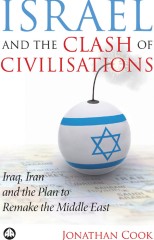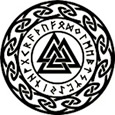
Author : Cook Jonathan
Title : Israel and the clash of civilisations Iraq, Iran and the plan to remake the Middle East
Year : 2008
Link download : Cook_Jonathan_-_Israel_and_the_clash_of_civilisations.zip
Preface. In summer 2007, Ghaith Abdul Ahad of the Guardian and Rajiv Chandrasekaran of the Washington Post, two young journalists who had recently won awards for their coverage of the US occupation of Iraq, sat down to discuss the disaster unfolding there. In particular, Abdul Ahad, an Iraqi who had spent years on the run from Saddam Hussein’s army, could claim an intimate familiarity with Iraqi society not possible for his Western colleagues. Also unlike them, he did not live in the Green Zone, a sealed-off area of Baghdad from which Western journalists rarely ventured, and when on assignment he never ‘embedded’ with US soldiers. The two journalists agreed that Iraq, a country where more than 650,000 people had probably been killed since the US invasion, would continue to be ‘bloody and dark and chaotic’ for years to come. They also noted that before the US invasion, no one had been able to tell whether a neighbourhood was Sunni or Shia, two branches of Islam whose rivalry was at the root of a sectarian war engulfi ng the country. Under Saddam, Iraq had had the highest rate of Sunni and Shia intermarriage of any Arab or Muslim country, they pointed out. Abdul Ahad observed: Now we can draw a sectarian map of Baghdad right down to tiny alleyways and streets and houses. Everything has changed. As an Iraqi I go anywhere (not only in Iraq, but also in the Middle East), (and) the fi rst thing people ask me is: ‘Are you a Sunni or a Shia?’ … I think the problem we have now on the ground is a civil war. Call it whatever you want, it is a civil war. Four million of Iraq’s 27 million inhabitants had already fl ed the country or become internal refugees, exiled from their homes. Was partition of Iraq between the three main communities there – the Sunni, Shia and Kurds – inevitable? Chandrasekaran thought so: ‘People are already voting with their feet. They’re dividing themselves on their own, people are moving from one community to another, one neighbourhood to another in Baghdad. In some cases they’re leaving Iraq outright. This is the direction things are headed.’ Abdul Ahad, clearly upset by the thought of his country breaking apart, nevertheless had to agree that communal division was happening: I see a de facto split in the country, I see a de facto cantonisation between Sunnis and Shia. To enshrine this in some form of process will be messy, it’ll be bloody. The main issue is for the Americans to recognise they don’t have an Iraqi partner. So who was responsible for the civil war and the humanitarian catastrophe? Chandrasekaran answered: ‘I wouldn’t blame the US for the civil war in Iraq, but I certainly think an awful lot of decisions made by Ambassador (Paul) Bremer, the fi rst American viceroy to Iraq, have helped to fuel the instability we see today.’ In this book, I argue that this prevalent view of Iraq’s fate – that its civil war was a terrible unforeseen consequence of the US invasion and a series of bad decisions made by the occupation regime – is profoundly mistaken. Rather, civil war and partition were the intended outcomes of the invasion and seen as benefi cial to American interests, or at least they were by a small group of ultra-hawks known as the neoconservatives who came to dominate the White House under President George W. Bush. The neoconservatives’ understanding of American interests in the Middle East was little different from that of previous administrations: securing control of oil in the Persian Gulf. But what distinguished Bush’s invasion of Iraq from similar US attempts at regime change was the strategy used to achieve this goal. ...

Davis James Kirkpatrick - Spying on America
Author : Davis James Kirkpatrick Title : Spying on America The FBI's domestic counter-intelligence...














